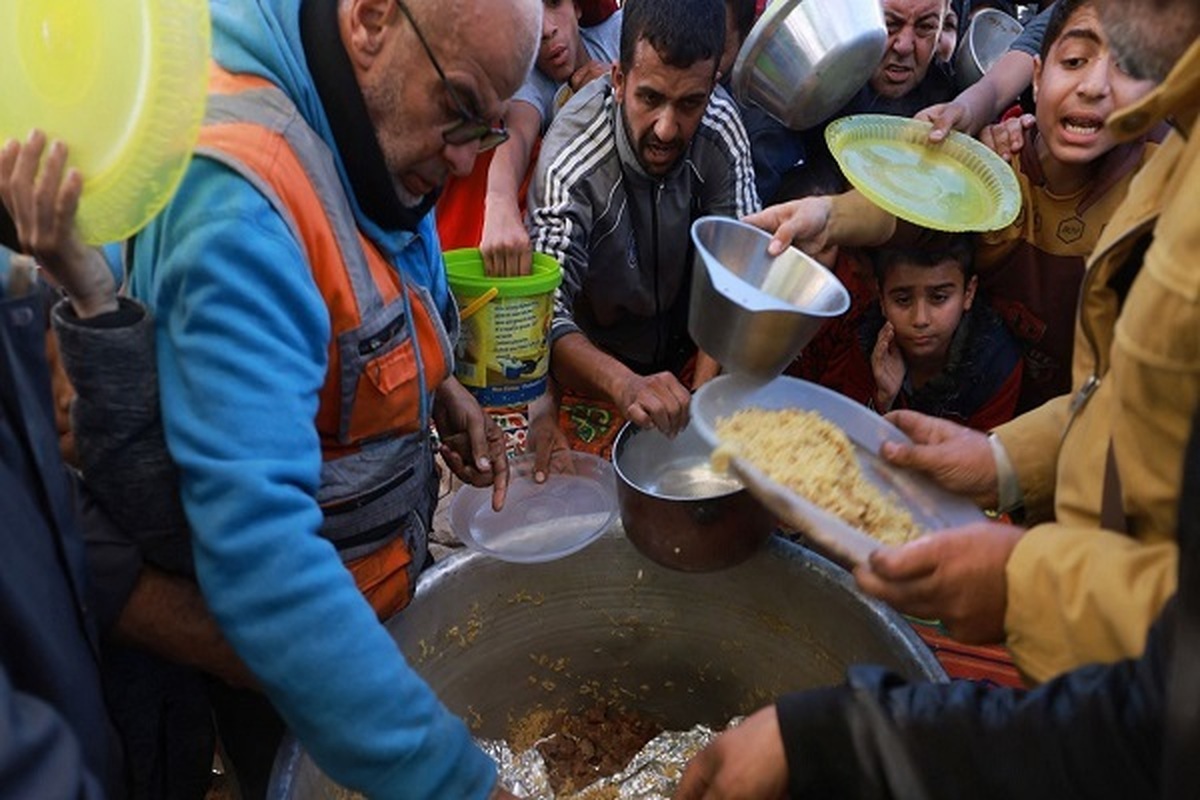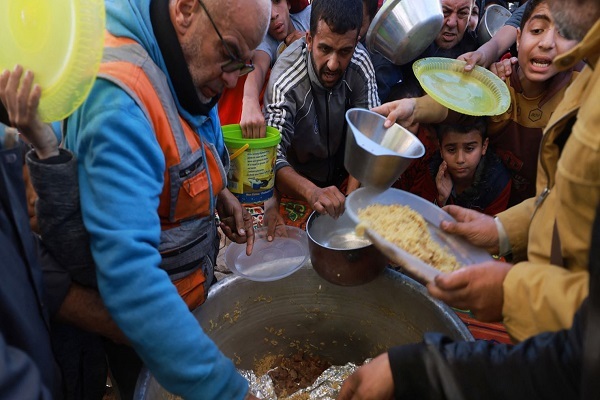Famine Inevitable in Gaza, UN Rapporteur Warns


It is because of the decision by Western countries to pause funding for the UN’s agency for Palestinian affairs, Michael Fakhri, said on Sunday.
“Famine was imminent” and now “inevitable”, he said in a comment following the news that the US and nine other countries were suspending additional funding to the UN Relief and Works Agency for Palestinian Refugees (UNRWA).
“This collectively punishes over 2.2 million Palestinians,” he said.
It was also unclear yet what reassurances from UNRWA would be required for donors to restart funding, UNRWA staff said.
About half of Gaza’s population was already heavily dependent on UNRWA assistance before the war. The organization provides schooling, medical care, flour for local bakeries, and runs desalination plants to ensure Palestinians can get clean water.
Since October 7, UNRWA’s schools have become shelters for those displaced amid the Israeli regime's bombing campaign which has killed more than 26,400 people. The agency is also the main vector for aid distribution.
“This will be a catastrophic situation,” said Haneen Harara, a worker at a Dutch non-governmental organization, sheltering in Gaza’s southernmost city of Rafah. Her family had already spent hours each day queuing and walking to find what little food and water was available, much of it provided by UNRWA, she said. “If UNRWA shuts down it will make the situation so much worse. Even before this news there were huge limits on the aid entering Gaza.”
While UNRWA staff are trained for emergency responses, the worst-case scenario planning for Gaza envisioned 150,000 displaced people in 50 shelters for a maximum duration of 50 days. The Israeli war on Gaza, entering its fourth month, has displaced 85% of the population from their homes and left civilians facing acute shortages of food, water and medicine in cold and wet winter conditions.
The funding freeze drastically threatens the already meagre supply of aid reaching the besieged coastal territory. Humanitarian groups including the UN estimate that 500 lorries carrying aid are required daily to provide the minimum help required, but the number at the moment able to cross through Egyptian and Israeli checkpoints is often below 100.
Prior to the donor decision, UNRWA had already been forced to make new distribution plans for food to accommodate the thousands of people camped in their shelters and often just as many outside, also on the verge of starvation after being displaced multiple times.
UNRWA’s crisis has also overshadowed the historic interim ruling on Friday from the world’s top court that Israel must “take all measures within its power” to avoid civilian deaths in Gaza and enable the delivery of humanitarian aid in order to prevent “acts of genocide” in the strip.
Fakhri, the UN special rapporteur, said on X on Sunday: “The day after [the international court of justice] concluded that Israel is plausibly committing genocide in Gaza, some states decided to defund UNRWA for the alleged actions of a small number of employees. This collectively punishes +2.2 million Palestinians. Famine was imminent. Famine is now inevitable.”
A total of 152 UN employees have been killed in the war to date.
Source: The Guardian



